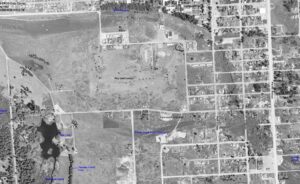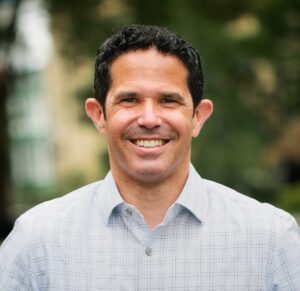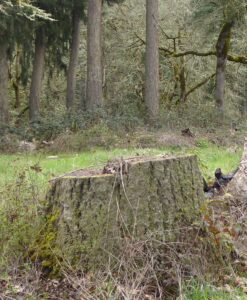
Save the date: Saturday, September 28th, the Environmental Coalition will host a Fall Conference about the future of growth management n Pierce County. This is the 30th anniversary of the first County Comp Plan.
From 9am to Noon, we’ll discuss changes in Pierce County’s Planning Department that will provide residents with a significant voice on zoning issues and how to create more livable communities. We’ll also talk about how to implement the 20 Amendments that the county council passed this year. These are guidance about some of the needed changes that are necessary to make the Community Plan Areas more livable, not just more crowded.
We need environmental advocates on the County Planning Commission, and our Land Use Advisory Boards who can implement these changes and who will represent people from both political parties, as well as underrepresented voices in the community.
Ryan Mello and other Pierce County Council members have been invited to discuss their plans for change that will put People First. Ryan Mello has been on the Puget Sound Regional Council for years and brings to the discussion a depth of knowledge about how to make zoning code into workable solutions.
Read more: https://forevergreencouncil.org/youre-invited-to-environmental-coalitions-conference/
In addition, advocates like Al Schmauder will lead a panel discussion on how the county can recharge aquifers, with a goal of returning stream flow in Clover Creek in late summer. This may sound difficult, and it will be. But it is necessary to ensure local water companies will be able to meet the challenge of another one million people moving to our county.
Claudia Finseth also will lead a panel discussion about how we implement the current Growth Management Plan Amendments. She brings with her experience with Land Use Advisory Boards and Planning Commission. In helping to write the Parkland-Spanaway-Midland Communities Plan, Claudia Finseth participated in creating a vision for a thriving, livable community.
“Now is a chance to move that vision forward, including protecting the Spanaway Marsh as a new Wetland-Forest Preserve and finding appropriate ways to help people experiencing homelessness.”
John Garner will speak about all the open space projects and wildlife habitat that can be purchased if we double the amount of Conservation Futures funding every year. Come find out how to pass state legislation and coming legislation like this — that will be introduced in the State Legislature by the County Council..
Dr. Elly McGahan will present information about how her Climate Change group is coordinating with 12 cities to write grants and find was to reduce carbon emissions and prevent the effects of Climate Change on our cities and towns.
Brett Johnson will be there to bring us up to speed about the November election. He and others have been interviewing local candidates and knocking doors to talk to voters. He has a list of endorsed environmentally-minded candidates who would like to represent you in our county and state governments. GOTV!
Tim Trohiminovich from Futurewise will present what has been done to improve our Comprehensive Plan other the years, as well as coming state and local legislation that will add to livability in our communities.
Finally, we have invited our Pierce County Parks & Recreation staff to show plans for building connecting trails and new parks in community plan areas over the next decade.
Each of these community leaders are going to need your help in making these changes. We hope you’ll add your ideas to these plans for the future, then join the movement and help us put the “community” back into our Community Plans.
Community Organizer Kirk Kirkland will be there to discuss strategy and discuss other plans you may have in mind for your neighborhood, your community, or the entire county.
On the 30th anniversary of the Growth Management Plan in Pierce County, let’s figure out how we can work together to improve streetscapes, parks, forests, and trails that connect people and commercial areas in true community fashion, putting people first.
See you on Saturday Sept. 28th at 9am at Sprinker Recreation Center!

The environmental leaders running for elected office need to your vote this week.
For the last two years, the county council has made remarkable progress on environmental issues. With this election three seats on the council are changing. Marty Campbell is leaving and running for County Assessor. Ryan Mello is running for County Executive and Jani Hitchen is running for re-election on the November Ballot. This will cause a major change in orientation if the Democratic members do not retain their four seats.
Finding these seats on the County election ballot is a trick. The ballot has names on both sides with a primary election for Governor, Lands Commissioner, Congress and County Sheriff, county judges and state legislators.
Not easy to find the section for county council candidates, because there are so many unknown names.
We want to help you choose people who favor environmental causes in some of these important races for state legislature and the county positions. Look over the list of people we’ve interviewed at the end of this story.
Then go find your ballot, fill it out and put it in the mail. Time is running out. Your vote will make a big difference in the kind of couny we can create in the next four years.

Campaign donations play an important role in who is elected. To reach a majority of people in a state race costs hundreds of thousand dollars to get out a few mailers. Who the candidate receives money from is a prediction of how the elected will take care of the environment.
| ave Upthegrove is the only leading candidate not accepting donations from the logging industry, or their corporate executives and lobbyists. He is running a people-powered campaign. Most of his donations come from peole like you. |
On Sunday August 4th at 11.00 am, you can meet Dave Upthegrove in Tacoma and learn more about his campaign and his vision for how forests will be managed in the next 4 years. He’s at a fundraiser at Windermere Real Estate Offices , 2212 Mildred St. W. in University Place.
Unfortunately this election is one of those times that require your donation more than your vote. It is a money race where Dave’s opposition has more checks from the Forest Industry than from people like us who want a sustainable forest program that is good for Climate Change.
Look over our list of candidates, then go find that mail-in ballot. Fill in the blanks of the people you know are going to create the kind of sustainable world that we want to pass on to the next generation.
Read more https://forevergreencouncil.org/734-2/

Both Tacoma’s Planning Department and Pierce County Planning Department have circumvented the state Environmental Policy Act by making a Designation of Nonsignficance that does not evaluate significant impacts on large projects, like Tiny Home Village in Spanaway and the South Tacoma Warehouse District.
Is there a way to change this policy?___________________________________________________
The High Price of Environmental Justice in Pierce County
Environmental justice should not come at such a high price. But in the last decade, neighbors whose Land Use Advisory Commission (LUAC) veto projects in their community, were required to raise thousands of dollars to have environmental rules enforced.
In both the city of Tacoma and Pierce County, planning departments use a Determination of Nonsignificance to avoid enforcing environmental rules and Growth Management policies. Neighborhoods then must use the court system at a great costs.
Three recent local zoning appeals since 2018 demonstrate how poorly Pierce County Planning protects the environment. Lately the leadership to appeal these Conditional Use Permit appeals com from local neighborhood activism, rather than from countywide groups like Tahoma Audubon or Sierra Club which challenged zoning determinations in the past.
Read more: https://forevergreencouncil.org/747-2/
Reasons for the decline include the cost of an appeal and the need for local experience with the state Environmental Policy Act, which is necessary to appeal local planning policies and zoning laws.
In South Tacoma, a mega-warehouse was proposed to be built on an EPA Superfund site, which also sits on a significant aquifer. This aquifer provides a backup drinking water supply for Tacoma.
“In particularly challenging years, we use the South Tacoma Wellfield to supplement our water supplies. This enables us to reserve adequate storage for augmenting natural stream flows and maintaining healthy fish habitats,” according to the Tacoma Public Utilities website.
Instead of completing an environmental impact analysis, the City of Tacoma’s planning department used a Determination of Nonsignificance. The city asserted that increased truck traffic could be mitigated without studying neither the public health of the surrounding community nor impacts on groundwater recharge.
This was an environmental injustice. The city did not analyze the impact that such a large commercial development would have on the surrounding community with many people of color, or who are retired people with income below the poverty level.
A request for an Environmental Impact Statement was ignored by the city. Then, the city’s Hearing Examiner was not interested in the findings from the neighbors, and their appeal was rejected. The City of Tacoma Planning Department ignored Growth Management Plan Policy that limits development in what the city calls “Underserved Communities”.
If an Environmental Impact Statement had been conducted to analyze the situation, the problems with the aquifer and Superfund site would have been studied, and the Health Department would have provided statistics of the declining health for poor people and early deaths of retired residents living near the proposed project.
When an environmental impact study is done, an appeal in court by environmental groups is less costly. Often, the Growth Management Hearing Board can make a determination without causing legal costs to soar.
In the case of the proposal to build a Tiny Home Village near Spanaway Marsh and Audubon Springs, Pierce County also issued a Determination of Nonsignificance, ignoring the zoning requirements for wetland buffers, and allowing over 280 units to be built on 30 acres. An environmental impact analysis should have been conducted.
After over $130,000 in legal fees were paid to go to the Growth Mangement Hearing Board and the Pierce County Hearing Examiner, the neighborhood group still faces more legal fees to appear before other courts before arriving at the State Court Of Appeals. At a minimum, the additional cost of going to the Appeals Court will be another $50,000.
Fortunately, the high cost of an appeal did not stop neighbors who live around Burley Lagoon. When Pierce County published a Final Environmental Impact Statement for the largest geoduck farm in the county, the Friends of Burley Lagoon made their appeal with minimal attorney involvement.
The geoduck farm would impact the protected Pacific Salmon by eliminating eelgrass habitat. In turn, whales that visit the site are not protected either. The shellfish company used their boat to disturb seals and sea lions during feeding. All of these species are protected by the National Marine Mammal Act, and Pierce County did nothing in response.
What’s more, Pierce County planning staff ignored a 2019 Federal Court Decision that required a Cumulative Impact Analysis for the entire South Puget Sound before granting a permit. Staff insisted this large geoduck farm would only have minor impacts.
Friends of Burley Lagoon recently hired the same attorneys as Spanaway Concerned Citizens. They are looking to address the issue with the Shoreline Hearing Board before an appearance at the State Court of Appeals.
This year, a new Environmental Coalition has formed by activists who were previously active in Audubon and Sierra Club. Some testified at hearings and wrote comment letters. Volunteers in the Environmental Coalition have no legal staff and limited fundraising capability, but we work hand-in-hand with a variety of organizations to meet objectives.
During this pause of activity while Spanaway Concerned Citizens and Friends of Burley Lagoon decide on legal strategy and write their appeal briefs, what can be done to reduce these high costs of environmental justice here in Pierce County?
- Win the appeals. Sounds easy, but it really means hard work at fundraising, finding environmental sympathy in the community.
- Ask attorneys to set a ceiling for appeal cost. Once the cost is estimated, attorneys may finish the job on a pro bono basis, if asked. When court costs for initial hearings are over $100,000, they should share in the cost of justice.
- Apply for grants. The Center for Biological Diversity funded protection for Audubon Springs and stopped the Cross Base Highway two decades ago. Their contact information is online.
- Change county policy for environmental review. Anew county council could change the policy on the standard to require a Environmental Impact statement and not use a Determination of Nonsignifance.
For example if the Tiny Home Village for the homeless would have been required to do a Environmental Impact Statement, then it would have showed that the rural zoning would not allow Tiny Homes for 280 people. It would show buffers for wetlands were not being enforced and it would have required an alternate site and also reduced the size of the village permitted in a rural zone.
If proposal was appealed, then the data could be used in the appeal process instead of requiring a list of witness and documents. These would be incorporated into the EIS. The EIS would have resolved the issues into a scientific document instead of requiring an appeal.
- Elect a new Pierce County Executive. The current County Executive designated the Tiny Homeless Village permit as a priority project and skipped the environmental analysis requirements of the State Environmental Policy Act.
The planning staff and the Pierce County Hearing Examiner followed his lead giving a preference for this development. The Hearing examiner frequently interrupted appellants testimony. And also dismissed public comment before the speaker had finished.
It’s time for a new Pierce County Executive who can change policy about who gets priority from the planning staff. And it’s time that local planning advisory boards be given the option of requiring an Environmental Impact Statement when neighbor’s call for denial of the project.


